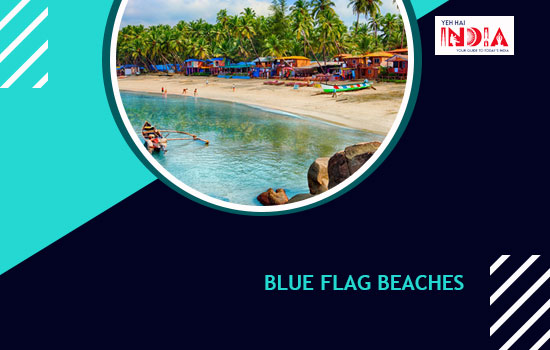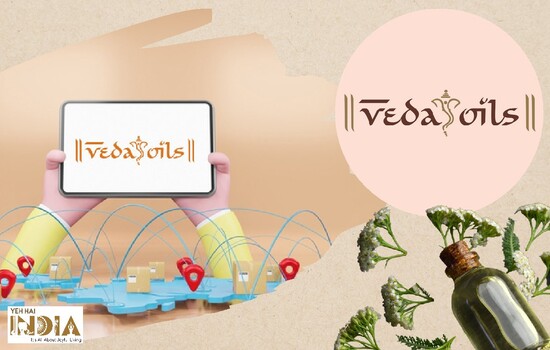Beaches are the most tranquil places that we long to visit and spend a holiday in. But much lies on the beaches than the crystal clear aquamarine oceans and the serene atmosphere.
Beaches are often the pivotal point of marine pollution. It’s here that most of our plastic trash ends up. Every year you have obviously witnessed reports of tons of trash including plastics being washed up ashore on Versova beach of Mumbai and how one man Afroz Shah alone spearheads the largest beach clean up drive in the world.
Elsewhere in the country we litter beaches with wastes like packets of chips, wooden pieces and other toxic materials that harm the oceans and marine life.
However, some beaches stand out because of their eco friendly nature which is garnered by the efforts of individuals and startups initiatives. Last year 8 such beaches of India received the prestigious blue flag certification.
Blue Flag – Marking the Best Beaches
Blue Flag is an international recognition bestowed on the best beaches of the world by Denmark based organization Foundation for Environmental Education. Every year they scrutinize beaches on 33 different yardsticks and select the best amongst them for the tag.
In 2020 8 Indian beaches got that tag because of their eco friendly nature which protects the environment, marine life and harbours sustainable tourism opportunities.
The blue flag tag helps selected beaches to become global destinations and help in protecting the biodiversity of the region including its local communities.
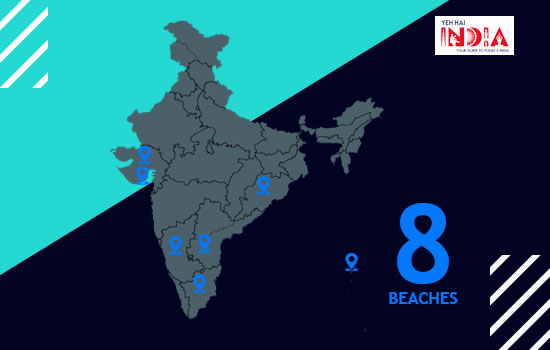
Last year the Golden Beach of Puri, Odisha, the Radhanagar Beach of Havelock, Andaman, the Shivrajpur beach of Dwarka, Gujarat, the Ghoghla beach of Diu, the Kasarkod and Padubidri beach of Karnataka, the Kappad beach of Kerala and the Rushikonda beach of Andhra Pradesh received the prestigious certification, which is a first for a country to get 8 tags at a time.
These 8 beaches got the tag because they have sustainable solutions in place which prevents tourists from exploiting and littering the place, making natural life prosper along with local human activities.
In places like Radhanagar Beach of Havelock you have ecofriendly bathrooms, toilets, showering and other facilities for people. You aren’t allowed to carry plastic or litter any. The beach is regularly cleaned. Drinking and smoking is prohibited on the beach. All this goes on to make it an eco-friendly tourist spot.
Recommended Story – Mask Pollution: How Startups and People Are Solving It
Beach Pollution in India
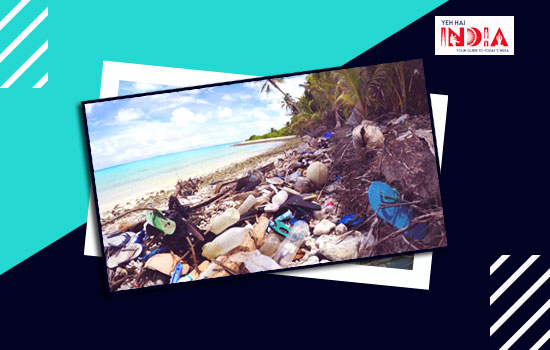
Most people simply don’t realise the extent of hardwork and beach cleaning and ocean cleaning effort that need to be adopted to instill this coexistence and mutual respect for the surroundings.
For years the Rushikonda Beach is cleaned by divers diving deep into the sea to pull up marine litter and also volunteers working on beach cleaning. 70% of the marine biodiversity in Rushikonda has vanished due to plastic debri.
Our beaches and oceans bear the brunt of tourism and fishing which leaves a permanent trace on them. Beaches in India are littered with food waste, plastic waste and fishing nets and gears, making it quite a hazardous place.
The extent of the problem is revealed by a coastal cleanup project done in 2019, showcasing that India produced 35 tons of waste from 34 beaches alone.
Even in the backwaters of Kerala they found these trash. The volunteers collected more than 9500 kg of litter from 5 beaches of Kerala in just 2 hours of the drive, such was the extent of it. The debris is all kinds of products including metals, wooden chips, food packets, plastics, rubber items, paper cups, glass bottles and other materials.
Researchers have found that most of this waste are left by irresponsible tourists leaving household items and other staff on their refreshing visit to the beaches. A miniscule portion of this waste is attributed to fishing gears like nets and other staff.
All this shows why such blue flag certificates are essential to recognize the efforts made by startups, organizations, individuals and communities to keep the beaches clean and foster responsible tourism on the beaches.
Sucking the Waste Out of the Ocean
Beach clean ups and ocean clean ups are crucial for tourism and there are startups and organizations making it possible. One such venture is G-TECH.
The 2019 Smart India Hackathon showed the world how to suck out the waste from the ocean including oil spills. 6 students from Bhubaneswar Abhishek Kumar Dubey, Subham Kumar Deo, Chandan Kumar, Santosh Kumar Mahatha, Sofia Khanam, Sweta Joshi formulated a GPS app operated float that sucks out waste from the ocean.
It’s a smart electromagnetic float operated by a GPS tracking app which you can monitor. They U shaped float sucks up plastic waste and oil from water and then locks it when it’s full. The float changes its shape to O to lock the trash which shows in the app. After receiving the notification people can collect the trash from the float.
The engineers are now onto launching their startup after the success of this Ocean Cleaning Device, G-TECH
Inspiring People To Clean Beaches
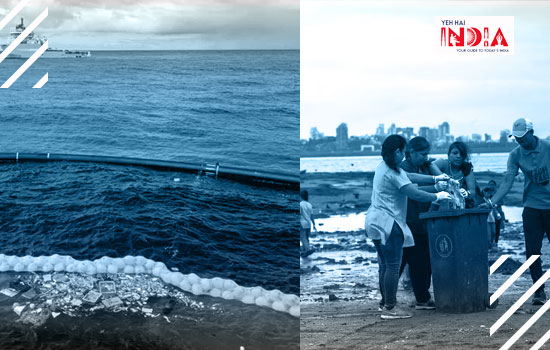
Mumbai based couple Indranil Sengupta and Rabia Tewari got aware of the extent of marine plastic litter on the beaches of Bombay when they started doing beach clean ups.
They realised the extent of the problem and understood that alerting the local authorities is of no help as citizens must be made aware and organized to drive clean ups. Keeping that in mind, they started with the idea of Ethico which inspires people to clean up the beaches and lead a sustainable life.
Their idea was to promote a reduce, reuse, recycle fervour in people rather than just propagating beach clean ups. So through Ethico they started sharing the latest info on plastic pollution and sustainable ways of living.
As more and more people got interested they started the Mahim Beach Cleanup program in 2017 which started with 20,000 volunteers collecting 10,00,000 kg of marine litter. The initiative reached out to millions on social media and was honoured by the United Nations.
Thus 2 people’s conviction changed the landscape of Mahim and the lives of many people towards sustainability when they got informed about bettering life and environment through Ethico.
Turning Beach Waste Into A Resort
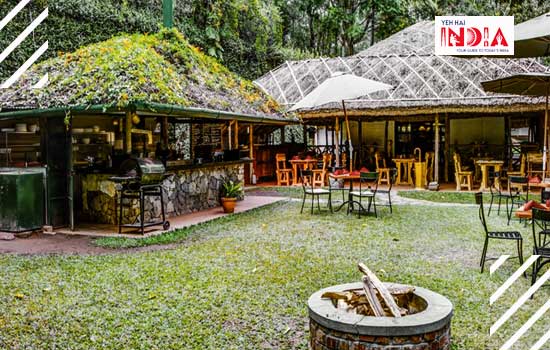
In the beautiful emerald waters of Andaman lies a luxurious eco-friendly resort made up of scraps. The Outback Resorts in Govind Nagar Beach of Havelock has made a resort with littered plastic bottles.
In a bid to protect the environment along the Govind Nagar Nemo reef area and also in Havelock, the resort has recycled discarded plastic bottles used as walled art installations.
So, now instead of the beaches of Andaman, the walls of this resort is littered with 400,000 installations of these plastic bottle debris.
Quite an effective way to turn waste into sustainable products isn’t it?
These examples highlight how people and organizations are coming together to clean up the beaches in India, making way for more such blue tag beaches.
We have already got 8 and with your efforts you can win many more. Just look out for yourselves and the beaches when you relax on a beach next time. Maybe we can skip the drinking and smoking this time and concentrate on the beauty that they are!
Also Read – Social Entrepreneurs of India: Bringing the change


